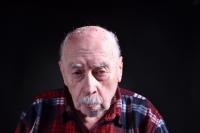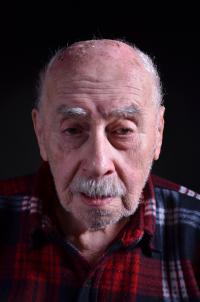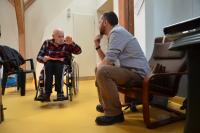I didn’t really believe I would survive
Otto Taussig was born in 1926 into a Jewish family in Ústí nad Labem. His father taught at the local grammar school. The family first decided to stay in the border region even after the Munich Agreement was signed, but when they were attacked during Kristallnacht, they moved to Prague. In December 1941 the Taussigs were transported to Terezín. They remained together there until autumn 1944, when Otto Taussig was taken by transport to Auschwitz. Luckily, he only stayed one month in the extermination camp, and in October 1944 he left with a labour commando to Meuselwitz, where he worked in the local munitions factory. In the last weeks of the war he was evacuated by train across the Czechoslovak border region. The witness was able to make use of the confusion caused by an Allied attack on the German train, and together with a friend he escaped. They managed to get to Prague, where they experienced the Prague Revolt. In the first years after the war the witness was mainly tasked by ensuring himself a living and by searching for surviving relatives. He was even embroiled in a lengthy legal dispute over the family villa of his parents. In the early 1950 Otto Taussig was arrested by State Security in connection with the illegal absconding of his neighbour. His wife was also interrogated, causing her lifelong mental troubles. The witness now lives in the Home for Social Care Hagibor in Prague.



